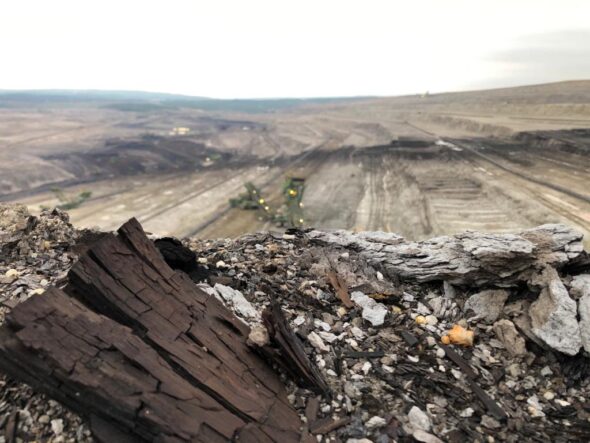„Poles are going through the torture of negotiating with the Czechs on the dispute over the Turów mine. In reality and despite the emotional frenzy, the talks are nearing the end, and an agreement is within reach,” writes Wojciech Jakóbik, editor-in-chief BiznesAlert.pl.
Poland and the Czech Republic agree that the compromise is close, and its draft is soon to be presented to the prime ministers of these countries for a final decision. However, another round of talks in Prague ended on the last day of September without a breakthrough. Still, a watershed moment should finally arrive in October, especially in view of the fact that the parliamentary election in the Czech Republic is scheduled for October 8-9. However, we warned on BiznesAlert.pl that the hard-line prime minister Andrej Babiš could be replaced by the even more intransigent Pirate Party politicians if they gain sufficient influence over government policy.
Despite the prospect of the lignite dispute at the Turów mine ending, the conflict over the duration of the agreement persists. The Ministry of Foreign Affairs has warned that the attitude of the Czechs was „irrational”, because they demanded that the agreement be valid indefinitely. Deputy Minister for Foreign Affairs Paweł Jabłoński compared this provision with the controversial clauses in the Yamal gas pipeline contracts with Gazprom and the Russian Federation. The Czech Environment Minister Richard Brabec argued that this provision was nothing new and it was the Poles who wanted to negotiate anew a long-established issue.
The leverage the Czechs can use, possible thanks to the irregularities that occurred when Poles decided to prolong Turów’s mining license (Lex Turów – worth reading about), was handed to them by the CJEU in the form of a EUR 500 thousand per day penalty starting on 21 May, when the court decided that Poland had to stop extraction at the mine until the legal dispute is solved. Of course, the Turów complex should not be shut down for two reasons: the agreement with the Czech Republic may take into account the absence of the CJEU penalty, its cost will still be lower that the price of shutting the mine overnight.
The media are turning the heat up, and the dispute over Turów has turned into yet another opportunity to throw bricks at European institutions, which sometimes make controversial decisions, such as the one to shut down the Turów mine. The ruling can be challenged by lawyers, but they will not necessarily be forced to do so if Warsaw manages to reach an agreement with Prague. However, the Court of Justice of the European Union has often defended Poland’s interests, for example by standing up for energy solidarity in disputes with Gazprom over Nord Stream 1, Nord Stream 2 and their onshore legs.
The biggest loser in this dispute is European integration, called out by the same people who do not want to criticize the achievements of the Polish negotiators. The biggest winners will be the Czechs, who use the circumstances and the available political and legal tools to pursue their interests. Warsaw can limit losses on the one hand, and use the Turów precedent to start a regional discussion on lignite mines in the Czech Republic and Germany, and additional funds for the energy transition in those countries and Poland.
It is worth noting, however, that the Turów agreement is only the beginning. Greenpeace is already challenging the license process of nine coal mines, and unofficially the German city of Zittau is considering suing Turów. Lignite mining in the three countries in question used to be a common asset during the prosperity of the industry, but is becoming a common burden in an era of accelerating climate policy. The Poles can show that the Czechs and Germans should also take political and financial responsibility for shutting down open pit mines. However, this requires that the fighting mood in our capital cities be replaced with cooperation. It would be enough to withstand the psychological torture resulting from the pressure of negotiation. The finish line is on the horizon. It is worth turning failure into success for the benefit of the whole region.









